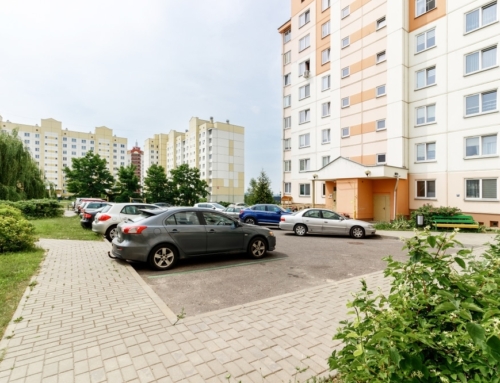Do renters make good neighbors? A condo owner wants to know if she should worry that her fellow owners rent out their homes.
Q: I live in a nine unit self-managed condominium building. Over the years, the board members rented out their units. In one year, two units sold and a third unit is up for sale. I’m concerned about the direction we’re going in. The president still rents out his unit. I’m a long time resident. What do you think of the status of this situation?
Should condos permit renters?
A: There are several issues at play when considering whether condo buildings should permit owners to rent their units. We’re going to take them apart so we can focus on the cause and effect of each individual item.
Allowing renters is good for condo owners
First, having the ability to rent a condo unit that you own provides flexibility for the owner. When you own an investment, you want to be able to manage that investment for the greatest possible return.
It would be nice to think that when you buy a property you are going to live there for the entire time you own it. But, life happens. You may:
- Get a job offer elsewhere that you can’t turn down
- Have a physical disability that limits your use of the property and requires a different living situation
- Develop an illness that requires you to live somewhere else temporarily
- Get married and need more space
- Have a child that needs a different sort of school than is available in your local neighborhood
- Buy a dog that needs outdoor space
- Decide you want to plant a garden
Allowing rentals can cause problems for the condo association and building
So why don’t all buildings offer unit owners the flexibility of renting their units whenever they feel like it? Allowing rentals can complicate life for the building and homeowners association.
Condo rentals can make a building less attractive to buyers
Although the rules have been relaxed and tightened over the years, the secondary mortgage market in the U.S. requires condo buildings to maintain a certain level of owner-occupied units in order to fund mortgages for buyers purchasing in those properties. If buyers can’t get mortgages easily for a condo unit, they will look elsewhere. That can depress prices for the entire property. (Over the years, the percentage of allowable units that may be rented has fluctuated from 50 to 80 percent. Fannie Mae’s current rate of allowed rentals in a condo building is 50 percent. )
Shorter tenancies mean renters may not make the best neighbors
Also, renters may be wonderful people but they don’t always make great neighbors. They may not take care of the overall property as carefully as a unit owner would, and the length of their tenancy tends to be shorter than the amount of time a unit owner lives in a home they own. Redfin reported that in 2021, the typical U.S. home changed hands every 13.2 years. According to ResidentRated, a renter satisfaction survey company, a typical renter will stay in a multi-family building for 27.5 months, or just over two years.
Many condo buildings have rules about renters
Some condo associations prohibit rentals of any sort, or offer unit owners flexibility to rent a unit for only one year. Buildings that do permit rents may require a minimum of an 18-month to 24-month lease.
Sometimes these renter rules will depend on the size of a condominium building. If you have a 500-unit high rise building, the association may not want to deal with renters coming and going on a yearly basis. That can mean a constant flow of movers using the elevator and loading dock. On the other hand, as in your nine-unit building, every time someone moves out, you might feel like you’re losing a neighbor or even a friend. And if three or four owners move, you would certainly notice the turnover, which could prove unsettling to some families.
Other than feeling unsettled, has there been anything negative about having renters in your property? The owners that moved out may have been replaced by great tenants. Sometimes you don’t know what you’ll get. If the owners sold and new owners moved in who weren’t good neighbors, would you be better off than if you had nice renters?
Condo owners have competing interests
It’s tough to make everyone happy while feeding a variety of interests, many of which are competing. As we see it, if you can achieve these three goals, the property has done a good job balancing interests: property values are increasing; you have good neighbors who take care of the property; and buyers of units in your building can get financing from lenders without having to jump through hoops.
We would, however, have concerns if the percentage of rented units is so high that lenders won’t want to lend to buyers, or tenants that move in are bad neighbors, don’t take care of common property, and make it difficult for you to live in the building. The best thing to do is be an active owner: run for the board, write smart rules and make sure all owners live up to them.
Read more about condos, renters and neighbors:
Condo living: Pros and Cons
How can I promote my condo?
Condo associations should have how much in reserves?
Can my neighbor block my view?






Leave A Comment